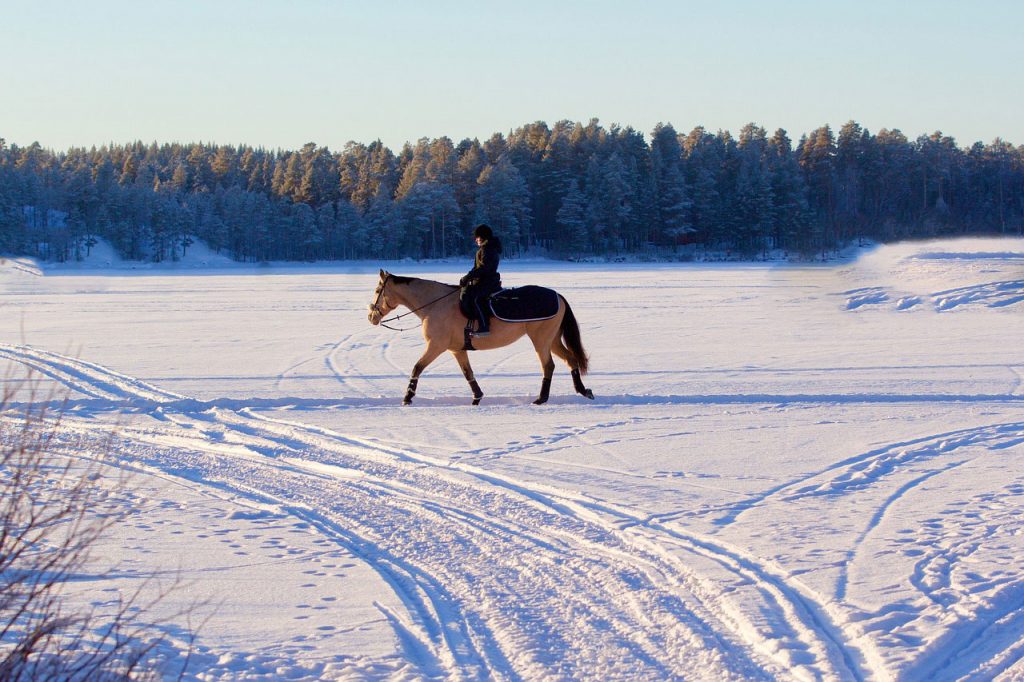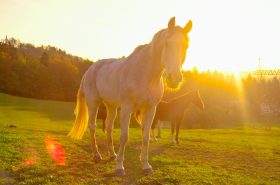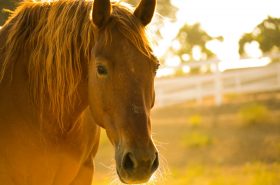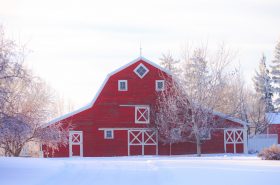Horses naturally fluctuate in body weight throughout the year based on the different energy input and output needs of each season. Let’s take a look at how each season affects our horses.
Winter
If you live in a cold climate, winter usually will demand the most energy output from your horse while they keep warm. Horses’ body temperature is higher than humans and they are better equipped to handle the cold than we are. Even if we are cold, they are probably feeling pretty comfortable in normal winter conditions. However, wind, rain, wet snow, and extreme low temperatures will put an extra strain on your horses through winter. The best way to help your horses stay warm is to offer them 24/7 access to hay. The digestive system of a horse works as an internal furnace and is the main source of heat for horses in the winter. Horses should go into winter a little heavier than they come out; stocking up on energy reserves from a summer of grazing and then leaning out to prepare for a return to pasture in spring.
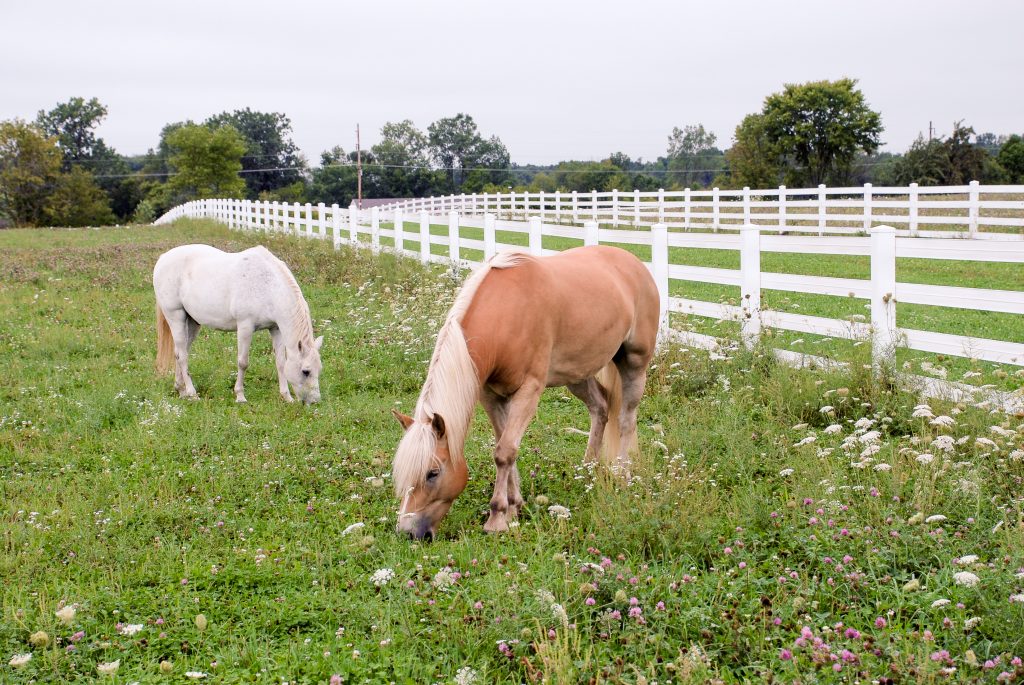
Spring
The explosive growth of pasture grasses in spring is a welcome boost of energy input after a long winter of energy output. To prepare my horses for this increase in calories and help ward off spring founder risks, I cut back their feed amounts in late winter to let them lean out slightly. This actually keeps their body weight more stable in the long run because they don’t gain a ton of weight as soon as they go out to pasture. When the pastures start growing, I start acclimating my horses back to grazing by slowly increasing their time on pasture while reducing their amounts of hard feed.
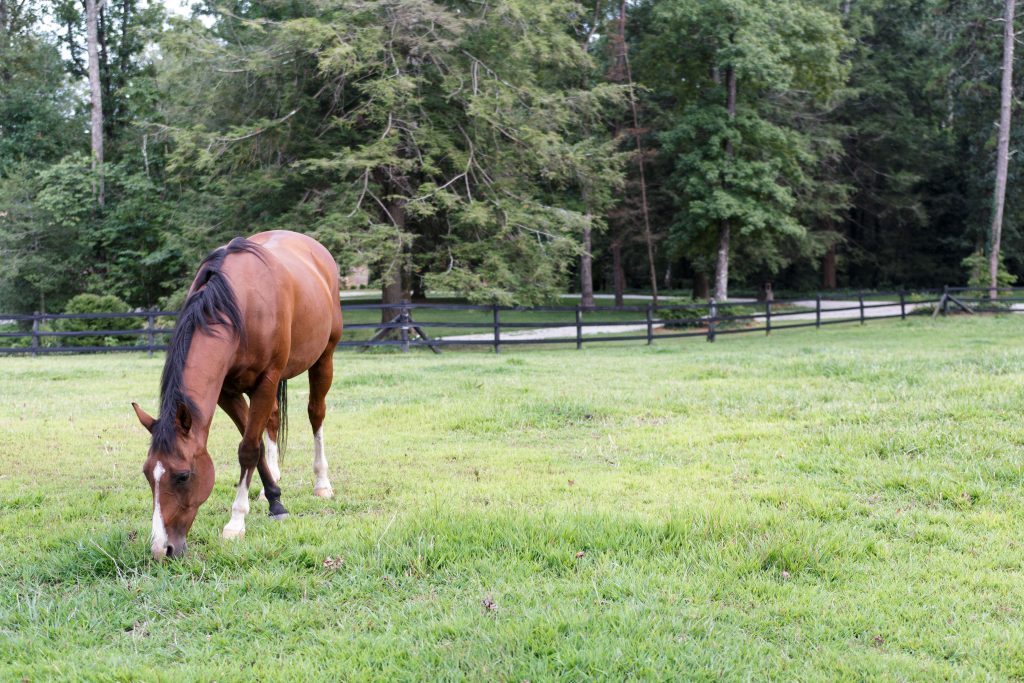
Summer
Summer is typically a body weight maintenance season. While energy inputs are higher from fresh pasture grazing, energy outputs are usually also higher as this is the peak of riding and show season. My horses get the bulk of their calories from pasture grazing. I supplement their forage intake with hay if we have a particularly dry summer with little grass growth, and feed a small amount of grain in the form of a ration balancer to make sure they get all the nutrients they need. Fresh grass has a high amount of omega 3 fatty acids, so this is usually the season your horses look the shiniest!
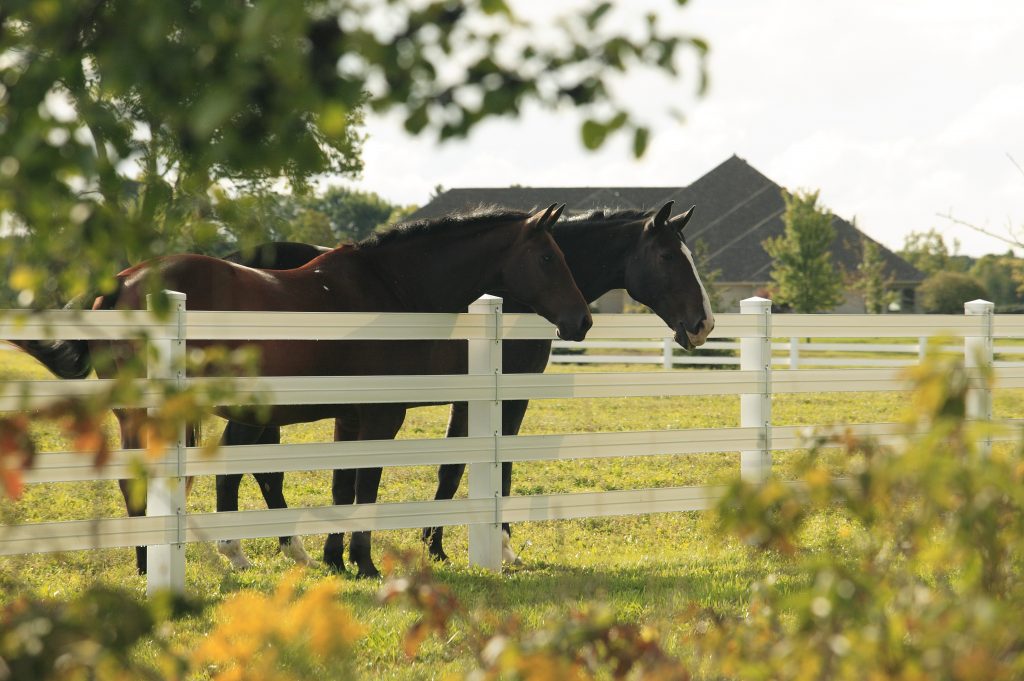
Fall
The energy inputs and outputs during fall can vary greatly by location and from year to year. A warm, dry fall can just be an extension of summer feeding needs, and a cold, wet fall can be an early jump into the higher calorie requirements of winter. After a summer of grazing, your horses are probably a little rounder, and that is a great preparation going into winter. Pastures usually get one last growth spurt during fall because the cooler temperatures signal the grasses to grow deeper roots before the winter period of dormancy. This can cause higher sugar levels in the grasses, so be mindful of fall founder risks if your horses are still on pasture. I start slowly introducing more hay and grain to my horses’ diets in fall to acclimate them to the dry feeds of winter and away from the fresh pasture grasses of spring and summer. This helps to put on a few more pounds in preparation for winter before their energy output needs increase to stay warm.
Other Things to Note
Body weight changes in your horses should never be drastic. These natural fluctuations throughout the seasons are very subtle and most people wouldn’t even be able to notice the change. Keeping notes and taking monthly conformation photos is a great way to document these subtle changes in your horses’ condition throughout the year. Make sure to note what you are feeding and how much, what the weather has been like, and how much exercise your horse has been getting. All of these factor in to your horses’ body weight.
What do you do to help your horses adjust throughout the seasons?
**
Jen and her husband, Clayton, bought their farm in August of 2018 and love living the simple country life. They share their home and farm with their dogs, cats, horses, and chickens. Jen loves learning and is always researching new things for the farm, house, animals, and natural wellness. Her favorite mantra is “thoughts are things” and hopes to inspire and empower people to create abundance and sustainability in their own lives. Follow Jen on Instagram @steelspoonfarm and read her blog at www.steelspoonfarm.com

